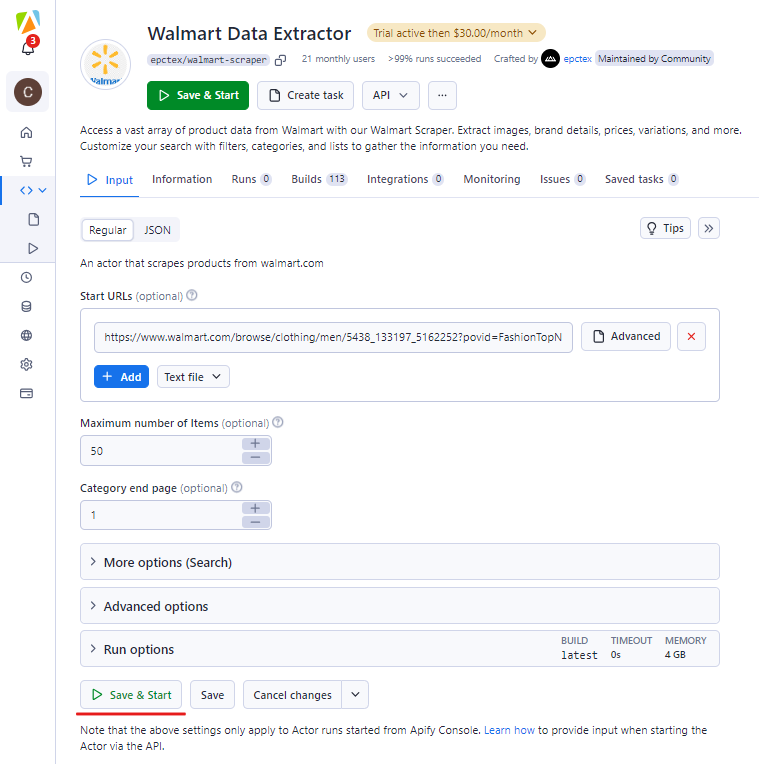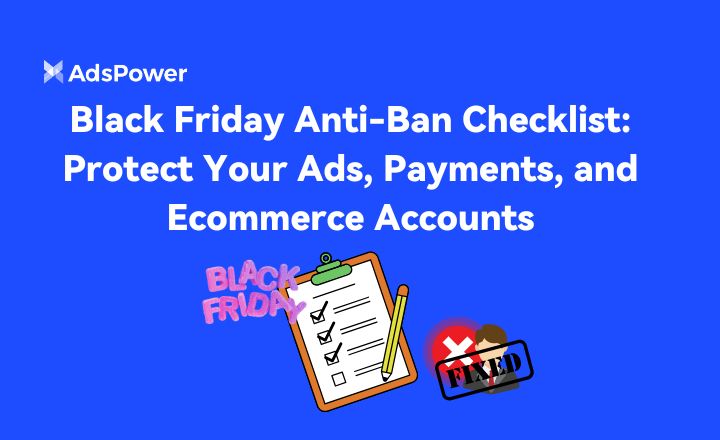Scraping Tripadvisor With 2 Easy Methods To Collect Hotels Data
Tripadvisor is full of useful travel information, including hotels, restaurants, and attractions. Businesses operating in the tourism sector can leverage this information for market research, competitive analysis, and decision making to improve customer experience and thereby grow their business.
However, getting this data isn’t as easy as just downloading it. It requires web scraping Tripadvisor, which many struggle with.
But what if we tell you there’s a way that makes it almost as easy as pressing the download button? Yep, you heard that right.
Read our guide and explore what that secret method is. Or if you like taking challenges, our guide also introduces a technical method of scraping Tripadvisor for you.
But before we get into those details, let's learn if it's safe to scrape Tripadvisor.
Is Scraping Tripadvisor Legal?
Web Scraping TripAdvisor data can be a gray area legally. TripAdvisor’s terms strictly prohibit any form of automated or manual data collection from their platform without explicit written permission. This includes any activity that involves accessing, monitoring, or copying content through automated tools like bots or scrapers.
TripAdvisor uses measures to safeguard its data, which includes technical barriers like CAPTCHA challenges and IP rate limiting to block automated data scraping tools. These measures can be triggered if Tripadvisor catches you collecting loads of data.
However, not all web scraping is frowned upon. If it's done ethically—meaning you're collecting publicly available information without disrupting the service—it can be permissible.
For example, gathering data on hotel prices for a personal project might be considered acceptable, provided it doesn’t infringe on user privacy or overload TripAdvisor’s servers.
The key is to ensure that you're scraping Tripadvisor for legitimate purposes and do not harm Tripadvisor’s service or access data against their policies.
Now let's get to business and show you how to scrape Tripadvisor all while staying ethical.
Two Ways of Web Scraping Tripadvisor
Our guide explores two methods for scraping TripAdvisor: the first one involves a user-friendly no-code scraper for beginners and the second one uses a more technical Python-based technique for those with programming skills.
We’ll start with the no-code Tripadvisor scraper first. So, if you want to scrape the easy way the method below is for you. Otherwise you may head straight to the Python-based method next to this.
Using a No-Code Tripadvisor Scraper
No-code tools are ready-to-use and only require minimum effort from the user to operate them. They come in many forms such as browser extensions, online consoles, and full-fledged desktop applications. All these tools offer their own unique scraping solutions.
Let's get started with the step-by-step guide and see what tool we have used.
Step 1: Selecting Your TripAdvisor Scraper Tool
First, you'll need a dedicated tool for scraping TripAdvisor. Many services offer this functionality. For this guide, we have used the TripAdvisor scraper from Apify, which is easy to use and comes with a free trial.
To start, head over to the Apify TripAdvisor scraper page and click the “Try for free” button.
Step 2: Set Up Your Account
Clicking “Try for Free” will redirect you to the signup page. Here, you can register quickly using your email, Gmail, or GitHub. 
Once registered, you’ll access a dashboard where you can set up your TripAdvisor scraping project.
Step 3: Specify Your Scraping Preferences
The TripAdvisor scraper offers two ways of scraping Tripadvisor data. You can either:
-
Enter specific URLs: Directly paste the URL of the TripAdvisor page you want to scrape.
-
Use keyword searches: Enter keywords such as country, city, or neighbourhood names, and the scraper will collect data from the search results.

For this guide, we’ll use the page URL to scrape Tripadvisor for hotels in Istanbul, Türkiye.
The “+ Add” button lets you add more URLs. Or if you have a long list of URLs ready, you can spare the effort and just upload a text file containing all the links.
Step 4: Adjust Your Scraping Settings
Before running your scraper, customize the settings according to your needs. You might want to set limits on the number of places to scrape per URL or search query.

Moreover, the Tripadvisor scraper also lets you specify the type of places to scrape. It can scrape hotels, restaurants, attraction spots, and vacation rentals all at once or as per your choice.
In addition, if you’re looking for hotels, you have the option to check for hotels within specific dates. By default, the scraper will assume tomorrow’s date if you don’t specify the duration. 
Lastly, the scraper also lets you choose a specific language and preferred currency. 
Although these settings are all optional, the default settings may not suit your specific requirements. If you have specific requirements, you should use these settings.
Step 5: Start Scraping
Once you’re set, click the ‘Start’ or ‘Save and Start’ button at the bottom of the dashboard. 
Now the Apify actor will start scraping Tripadvisor based on the given details. The status at the top will read “Running” while scraping is underway. 
The scraping process could take a few minutes, depending on the volume of data you are looking to scrape from TripAdvisor.
Step 6: Export Your Data
After the scraping finishes and the status changes to 'Succeeded,' you can view and manage your scraped TripAdvisor data. It will be organized in a user-friendly format that is easy to browse. 
You will see that Apify has scraped all essential details about each hotel. Apify offers multiple viewing options. You can either get an overview or a detailed view of the scraped data.
Switch to “All Fields” and you’ll be able to view the amenities that each place provides.
To download, just click the “Export X results” button at the bottom of the page. 
The TripAdvisor scraper supports multiple formats such as Excel, JSON, CSV, and HTML.
Choose the appropriate format and download the data, selecting either all collected data or specific segments that interest you.
Scraping Tripadvisor With Python
While no-code Apify scrapers are enough to get your hands on pretty much any type of data, they might trigger anti-scraping measures on some sites. Not all scraper tools have measures in place for unforeseen events and you may get stuck with with little control over the process.
However, if you can code, you can take charge of the reins and bypass any sort of scrape challenges.
Our guide uses Python as the programming language for today’s task. Let’s show you how it's done.
Step 1: Import Necessary Libraries
Open a new file in your Python editor and import necessary Python libraries that will help us with different aspects of web scraping such as:
-
requests: This library sends HTTP requests to a web server.
-
BeautifulSoup (from bs4): Takes complex HTML content and turns it into a structured format that you can easily extract data from.
-
Pandas: Used for data manipulation and analysis.
-
CSV: Deals with reading from and writing to CSV files.
Step 2: Identify the Web Page
Choose the TripAdvisor webpage you want to scrape. Let’s use the same hotels in Istanbul URL we used for the no-code Tripadvisor tool.
Once you have chosen your target page, inspect its HTML to understand where different data elements (like hotel names or prices) are located. This is done using the browser's "Inspect Element" feature.
Step 3: Retrieve and Parse the HTML
Create a function that fetches the HTML content of the webpage and converts it into a BeautifulSoup object, making it easier to scrape TripAdvisor data:
Don’t forget to use custom HTTP headers such as the User-Agent and Accept-Language to get your request accepted.
Step 4: Scrape TripAdvisor Data
Extract hotel names, ratings, reviews, and prices from the parsed HTML. For this use the built-in findAll BeautifulSoup method that finds all instances of a particular HTML tag and class. Then loop through the found tags, extract text from them, and clean it up.
Step 5: Organize the Data
Once you have all the data, convert the dictionary into a DataFrame using pandas for easy manipulation and visibility.
Step 6: Export Your Data
Finally, use the to_csv pandas method to write DataFrame data to a CSV file.
And Voila! You have successfully scraped Tripadvisor data using Python.
You Need Cover While Scraping Tripadvisor
While scraping TripAdvisor can be lucrative for your business, it's crucial to do it carefully to avoid detection and disruptions.
The AdsPower anti-detect browser can help your Tripadvisor scraper work covertly without exposing its bot identity. It uses advanced techniques such as fingerprint spoofing, request delays, and proxy rotation to avoid detection by websites.
So if your coding script is getting empty files or the no-code scraper you’re using is having issues rendering the target webpage, it’s time to download AdsPower.
Unlike other tools, AdsPower doesn’t ask for a hefty subscription fee. Instead, it offers a free plan. The paid plans also start at $4.5/month only.
So sign up for AdsPower today and scrape Tripadvisor like a pro.

People Also Read
- How to Switch Accounts on Chrome (Mobile & Desktop)

How to Switch Accounts on Chrome (Mobile & Desktop)
Learn how to switch accounts on Chrome for desktop and mobile. Avoid data mix-ups, manage multiple Google accounts safely, and use profiles for separa
- Black Friday Anti-Ban Checklist: Protect Your Ads, Payments, and Ecommerce Accounts

Black Friday Anti-Ban Checklist: Protect Your Ads, Payments, and Ecommerce Accounts
Protect your ads, payment gateways, and ecommerce accounts this Black Friday with a proven anti-ban checklist and AdsPower strategies to avoid flags
- The Solo Marketer's Black Friday Superpower: Scaling Like an Agency with AdsPower

The Solo Marketer's Black Friday Superpower: Scaling Like an Agency with AdsPower
Solo marketer for Black Friday? Learn how to scale your ads, safely manage multiple Facebook & TikTok accounts, and automate tasks with AdsPower.
- Play Roblox Without VPN: Safe and Easy Ways to Access Roblox

Play Roblox Without VPN: Safe and Easy Ways to Access Roblox
Discover how to play Roblox without a VPN in 2025 safely and easily. Learn working methods, safe practices, and tips to enjoy Roblox anywhere.
- How Can I Make Money on Fiverr? (Beginner’s Guide to Earning Online)

How Can I Make Money on Fiverr? (Beginner’s Guide to Earning Online)
Learn how to make money on Fiverr in 2025 with this beginner’s guide. Discover top niches, expert tips, and how to scale your freelancing business



